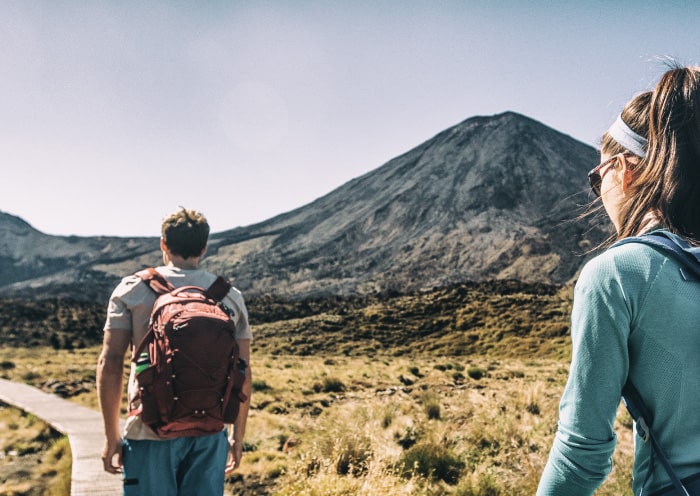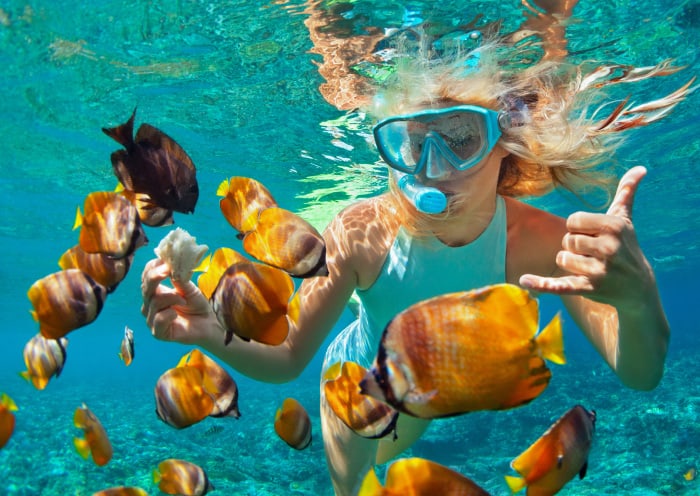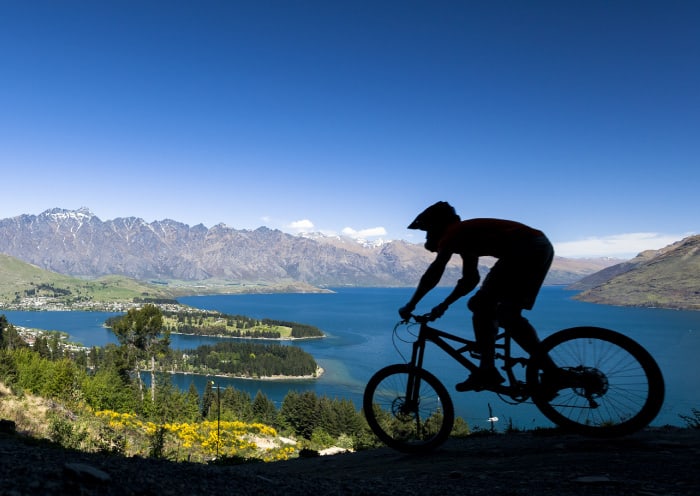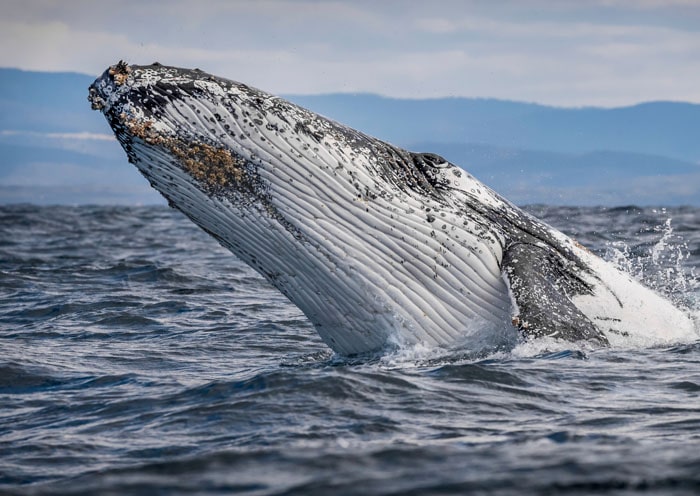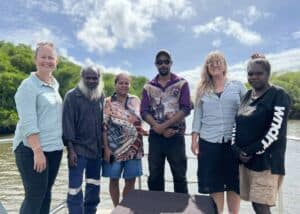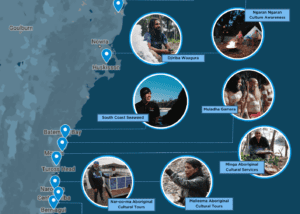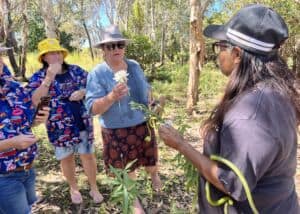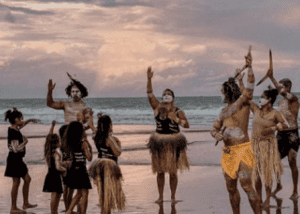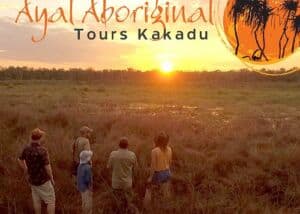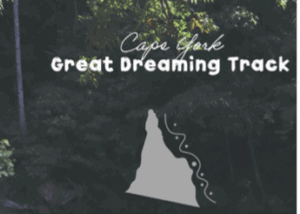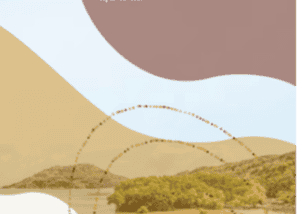INDIGENOUS TOURISM
DEVELOPMENT, PLANNING
AND BUSINESS SUPPORT
INDIGENOUS TOURISM
TRC is passionate about working together with traditional custodians and communities in both urban and remote locations across Australia, New Zealand and Pacific. We recognise the quintessential value cultural immersion has for visitors to destinations, as well as the critical value cultural tourism affords local communities and remote townships economically, socially and culturally.
Our specialists use a participatory planning approach to sensitively and respectfully work together with local Indigenous people. This approach fosters trust and mutual understanding from both a tourism and cultural perspective. Local people own and set the priorities and parameters for tourism, decide what can and cannot be shared and decide upon the benefits they want to realise through tourism. We also work with Indigenous communities in national park and protected area planning and the development of joint management plans and partnership approaches.
There is no one-size-fits-all approach for Indigenous tourism. Cultural obligations, responsibilities, protocols, values, traditions and levels of desired involvement will vary. Using an Indigenous Lens, we learn what local people desire from tourism and from their perspective, the things that visitors can see, do, learn and immerse in.
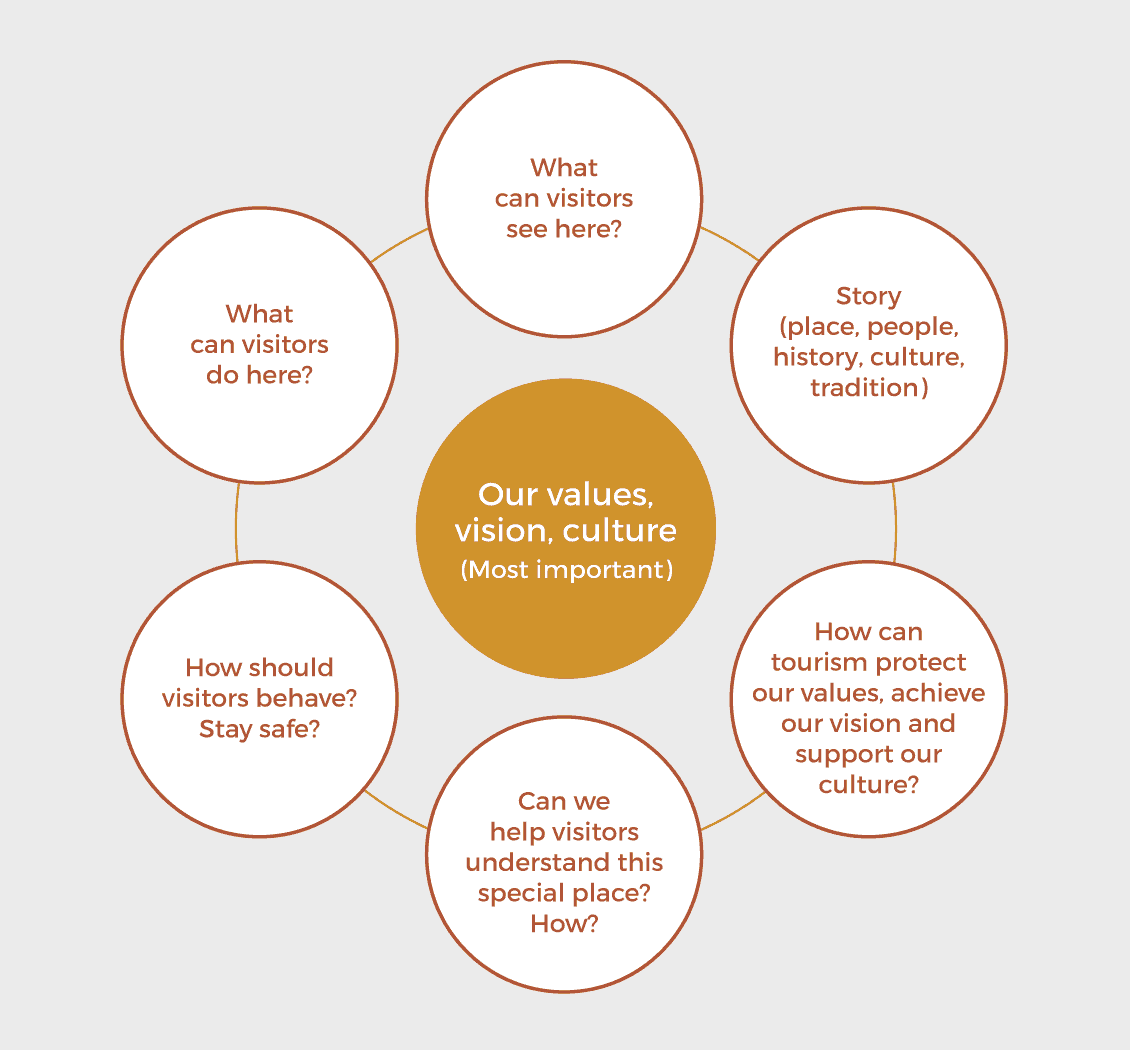
Grounds can also be set for how people might like to be involved in tourism. This includes:
- Passive — e.g. producing artwork for sale but not really interacting with visitors or tourism
- Engaged — employed by a tourism business or related service (casual, part-time, full-time)
- Leading — delivering cultural tourism (sole ownership, joint venture).
Indigenous tourism is also not necessarily a stand-alone. Indigenous or cultural
tourism is often at the core of a destinations offer, providing an opportunity for
local people to connect with traditions, food, practices, stories and way-of-life. This
could be connected to what we consider ‘mainstream tourism’ with Indigenous
stories, products and experiences enhancing attractions, sites, events, tourism
products and visitor interpretation.
TRC Tourism acknowledges the First Nations people of the lands, waters and communities we work together with. We pay our respect to their cultures; and to their Elders – past, present and future.
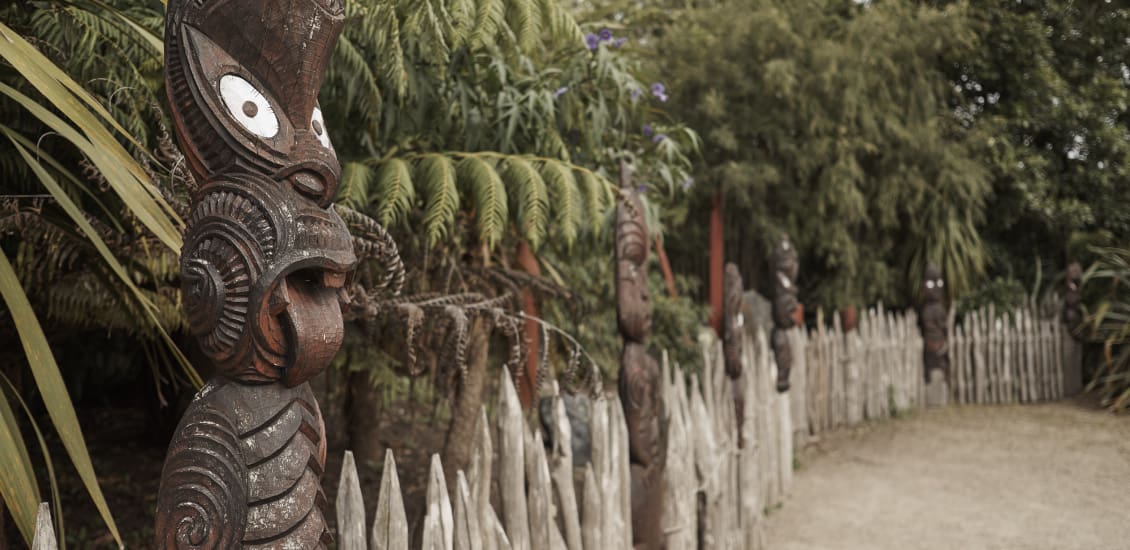
MĀORI TOURISM
TRC has designed a strong kaupapa Māori approach (that is by, with and for Māori) that involves working closely with iwi, hapū and whanau on the development of robust business plans to develop economically viable tourism experiences for local Māori ventures in the region and to differentiate the region from others. This kaupapa Māori approach uses a strategy whare (house) where the aspirations of the iwi/hapū are the whare roof with their values underpinning the process as the foundations. A second stage is tūmatanui/tūmataiti, the public versus private space for the hapū or iwi, and determining what can be shared.
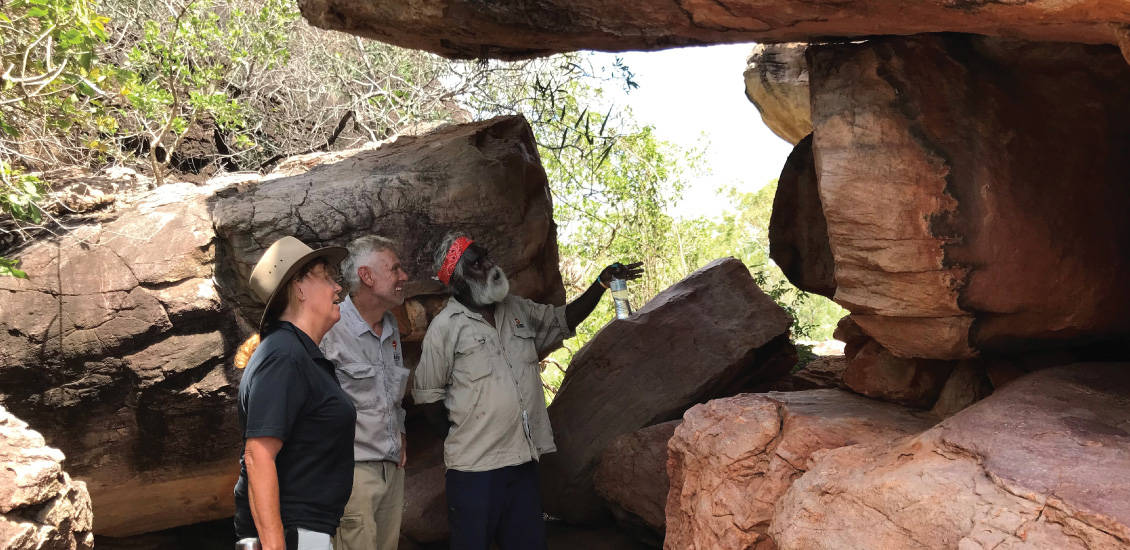
ABORIGINAL TOURISM
Australia is first and foremost Aboriginal land. When it’s appropriate, tourism can provide a fantastic opportunity for Aboriginal people to return home, proudly live, work and continue cultural learning on country. In turn, visitors can be rewarded with enriching cultural experiences that foster respect and appreciation. TRC understands the importance of respecting cultural protocols. By applying an Indigenous Lens (way of seeing) and a participatory planning approach to planning, Aboriginal people lead, own and determine the level and pace in which they want tourism to occur on their country.
WHAT’S IN IT FOR YOU?
TESTIMONIALS
Gippsland Destination Management Plan
Janet and the TRC team did a great job with the Gippsland Destination Management Plan and I would recommend them to any regional tourism organisation.
Kokoda Track Maintenance Program and Operations Manual
The TRC team mobilised rapidly to PNG to assess and repair Kokoda Track bridges severely damaged in the very heavy wet season of last year being choppered into the remote rugged terrain of the Track. Working in very well with The Kokoda Track Authority Rangers, Kokoda Initiative and local communities their efforts and skill contributed greatly to the Kokoda Track being ready for the 2019 trekking season. Remote communities also benefited from being reconnected across the often treacherous river crossings. TRC also helped build the capacities of The Kokoda Track Authority Rangers and local communities to explore ways for future sustainable bridge building and general track maintenance works. The resultant Track Operations Manual produced by TRC is expected to be a valuable guide for future Kokoda Track works.
Queenstown Trails for the future 2015-2025
From the outset the TRC team were responsive, intelligent, forward thinking and always available. The Queenstown Trails Trust worked with the TRC team in 2015 to craft a 10 Year Strategic Plan. The nature of our business involves very important stakeholders, great vision and many face to face meetings to form our plan. . The result of this partnership being a very robust and well thought out plan that we are proud to utilise to assist us in setting the future path of the Queenstown Trails Trust. Interestingly – TRC also formulated the original Trails Trust plan way back in 2004 – it was great to have the opportunity of working with TRC again as they truly understand our business.
Brook Waimarama Sanctuary Visitor Experience Strategy
TRC delivered a quality Visitor Experience Strategy for our organisation in a short timeframe. They took a practical approach that included gaining insight from the project’s key stakeholders and tied together the various elements of the project’s vision into a cohesive, actionable strategy.
Baw Baw Destination Action Plan, Marketing Plan & Recreational Vehicle and Tourism Signage Plan
TRC’s expertise in developing successful strategies regarding visitor economies and regional tourism proved extremely helpful to Baw Baw Shire Council when it sought guidance in enhancing its own Tourism Marketing Strategy, as well as in creating detailed action plans for three hero destinations across the Shire.
Destination Management Plan for Destination Southern NSW
TRC prepared and finalised our Regional Destination Management Plan on time and on budget. TRC provided great professional advice throughout the project – they also took on board the view and guidance we gave. From the outset we wanted a strong partnership with our contractor and that is exactly what we got from TRC – beginning to end.
Wellington Regional Trails Framework
In 2017 TRC worked with land managers and stakeholders from around the Wellington Region to develop the Wellington Regional Trails Framework. TRC’s destination management expertise, experience and professional approach was critical to the success of this ambitious project, that has seen 11 different agencies align their approaches and come together to move Wellington from an ‘under the radar’ network of tracks to a world class trails destination for residents and visitors alike.
Concept Plan for Adventure Cycling in the Tjoritja/West MacDonnell National Park
TRC Tourism’s Concept Plan for Adventure Cycling in the Tjoritja/West MacDonnell National Park exceeded expectations. The case it presents for a new, nationally significant tourism product is so compelling it has attracted immediate government investment and presents exciting opportunities for private investors and Aboriginal Traditional Owners.
Hamilton and Waikato Tourism Opportunities Plan
During 2016, the TRC team worked with Hamilton & Waikato Tourism and regional stakeholders to develop a comprehensive Tourism Opportunities Plan to identify opportunities for new and improved visitor experiences that had the greatest potential to drive growth. The TRC team brought significant experience in destination management and planning and a fresh perspective to the project. They were excellent to work with, engaged effectively with stakeholders and applied critical insights and analysis to complex issues.
Tourism Infrastructure Audit for Northern Tasmania
Tourism Northern Tasmania set out to define the private and public sector investment needed to sustain intelligent growth in the visitor economy for the region. TRC and their associates provided the well-rounded analysis, consultation and reporting that resulted in a clear vision of what to develop, where across Northern Tasmania. Less than six months from endorsing the final work and we are already seeing significant progress on three key infrastructure projects as well as active interest from private sector investors to take on opportunities profiled in work.
Mulligans Flat Woodland Sanctuary Concept and Interpretation Plan
I really appreciated the TRC Team’s professional and honest opinions in the final report and the thorough and thoughtful approach with our stakeholders.
Coastal Pacific Trail Feasibility Assessment
With the November 2016 Kaikoura Earthquake, a potential opportunity was raised to develop a cycle trail from Picton to Kaikoura. TRC were engaged to perform an initial feasibility investigation. TRC were very professional and were able to provide independent guidance in their report on how governance structures should be set up should the project proceed, with likely jobs generated for the region. They delivered on time and to budget.
Visitor Experience Strategy for Tidbinbilla Nature Reserve
In engaging TRC Tourism the ACT Parks & Conservation Service was seeking to develop a holistic Visitor Experience Strategy for Tidbinbilla Nature Reserve. As an iconic destination Tidbinbilla is ideally positioned to leverage from the emerging nature based tourism appetite for authentic experiences in a natural setting. Working with all stakeholders in a collaborative, intuitive manner TRC Tourism delivered a high quality outcome. A strategic blue print for the future.
New Zealand National Wetlands Trust Feasibility Study
Being a nationally significant project that will rely on tourist visits for its long-term financial sustainability, it’s crucial we get the best advice from professionals in the industry. TRC was our first port of call for a reality check on the feasibility of our proposal.


